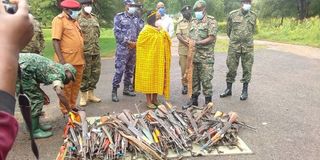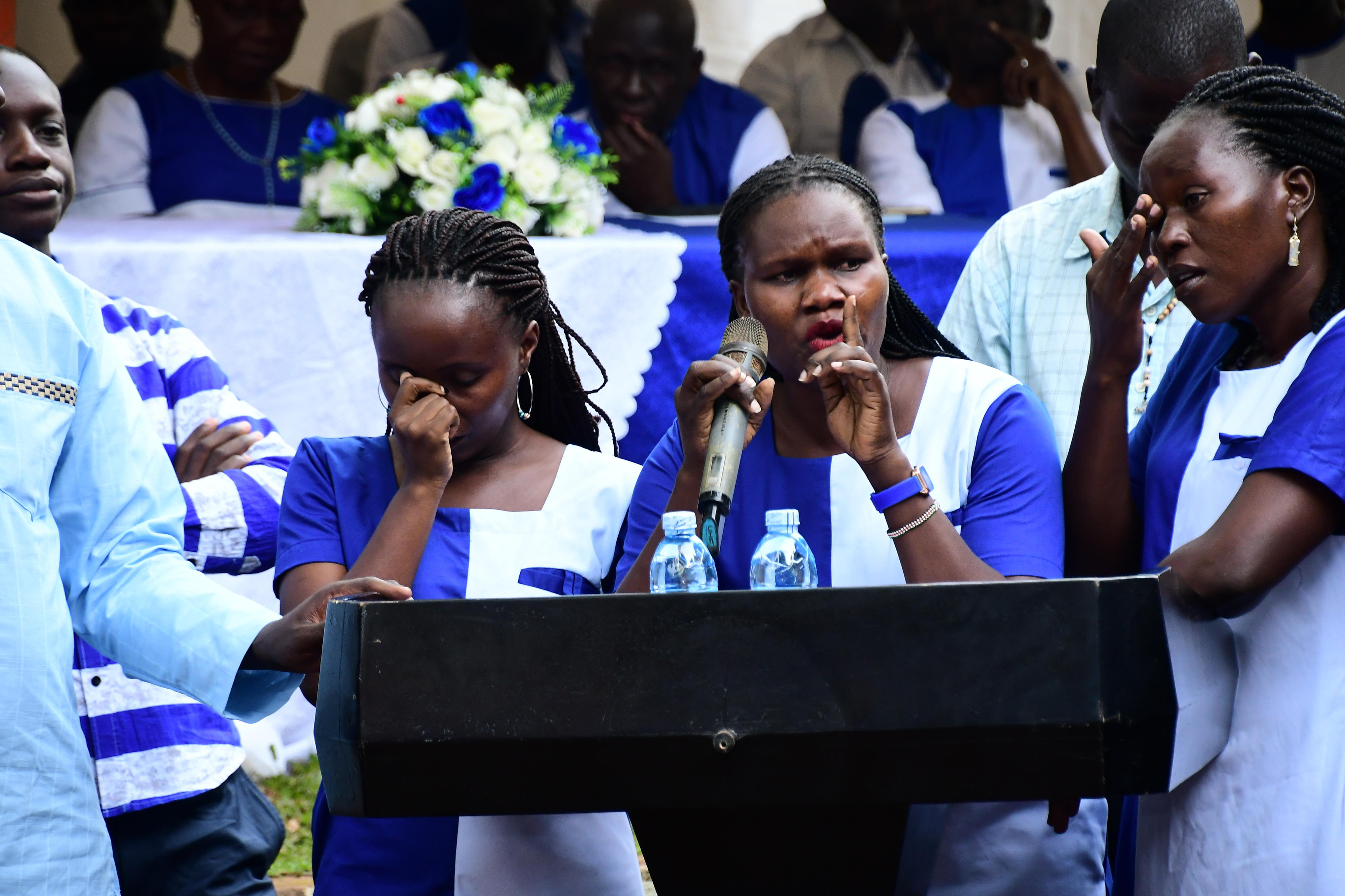Prime
Arms treaty to eradicate illicit trade in region - IGAD

Guns picked up recently in the disarmament effort
The Inter-Governmental Authority on Development (IGAD) Director Security Sector Program under the Peace and Security Division Mr Abebe Muluneh has said countries acceding to Arms Trade Treaty (ATT) will prevent and eradicate the illicit trade in conventional arms in the region.
“State parties to the ATT have agreed to establish the highest possible common international standards for improving the regulation of the international trade in conventional arms and prevent their diversion for the purpose of contributing to international, regional peace, security and stability that is aiming at reducing human suffering, promoting cooperation, transparency, and responsible action by States Parties,” he said.
Mr Abebe made the remarks during the Uganda national consultative meeting on arms trade treaty (ATT) and other relevant regional and international legal instruments to address illicit circulation of Small Arms and Light weapons (SALW) held in Entebbe.
“Small Arms and Light Weapons mostly enter Uganda through its porous borders with South Sudan, the Democratic Republic of Congo, Turkana in Kenya, and the waters of Lake Albert, Lake Victoria. Identifying trends of SALW trafficking along Uganda’s borders is complex due to the porosity of the borders coupled with a lack of capacity for law enforcement to monitor and detect instances of trafficking,” he said.
Mr Abebe said there is need for respect of the legitimate interests of States to acquire conventional arms to exercise their right to self-defence and for peacekeeping operations.
“To produce, export, import and transfer conventional arms, Implementing this Treaty in a consistent, objective and non-discriminatory manner,” he said.
The lead facilitator Mr Francis Wairagu said according to research by internal alert and partners, armed conflicts cost Africa $18 billion per year derailing development.
“Human life is wasted as young people dedicate their energies to conflicts that contribute to deaths at all levels of society. In post conflict situations, small arms proliferation significantly hinders the post conflict development process” he said.
Mr Wairagu said there is need for practical disarmament programs in post conflict countries to address the proliferation of SALW.
“Before disarming people, always first find out why they are armed, if you don’t they will go back and arm themselves again. Simultaneous disarmament has failed across states due to a difference in the legal system. There are things Uganda can do because of the structure of their law system that Kenya can’t do. We need to harmonise legislation in order to build regional enhancement capacity” he said.
The Ministry of Internal Affairs national coordinator on SALW, Mr Anthony Nakhaima said the reviewed national strategy on control and management of small arms will ensure peace and security in the country and across borders.
“We started implementing the national strategy in 2005, this is a reviewed strategy that is going to be implemented form 2021 to 2026, it will control and reduce proliferation of these firearms by putting in place proper legal regulatory and administrative procedures on control of firearms.
Mr Nakhaima said the strategy will strengthen the coordination capacity with all actors who are concerned with firearms and light arms.
“We want to strengthen the capacity of the actors so as they can respond appropriately in achieving this aim, it enhances the technical capacity to manage stockpiles, arms control initiatives that seek to address the supply of small arms” he said.
Mr Nakhaima said Uganda is in the process of acceding to the Arms Trade Treaty to ensure peace and security in the region.
“We have consulted with relevant actors on the content of the treaty, we have consulted with cabinet, the next thing is cabinet has to sit and make a resolution of adopting that process, that is where it ends but sometimes it becomes necessary to take it up to parliament, which would be the next step, after parliament adopts it, we sign, deposit the instruments with the UN and then we become party to the treaty” he said.



